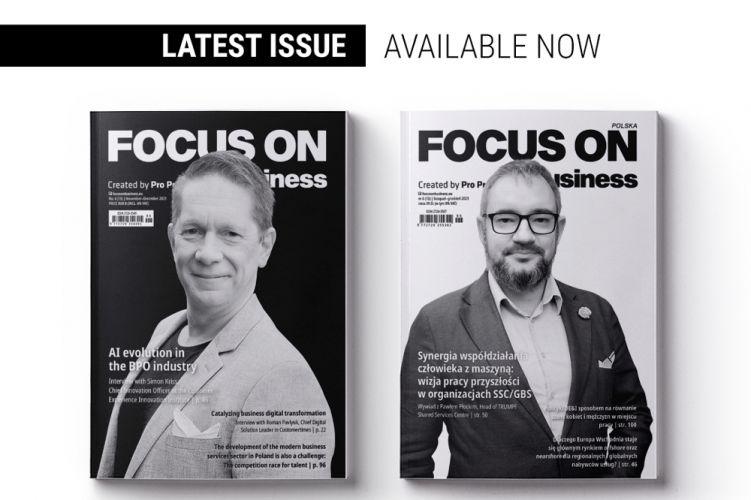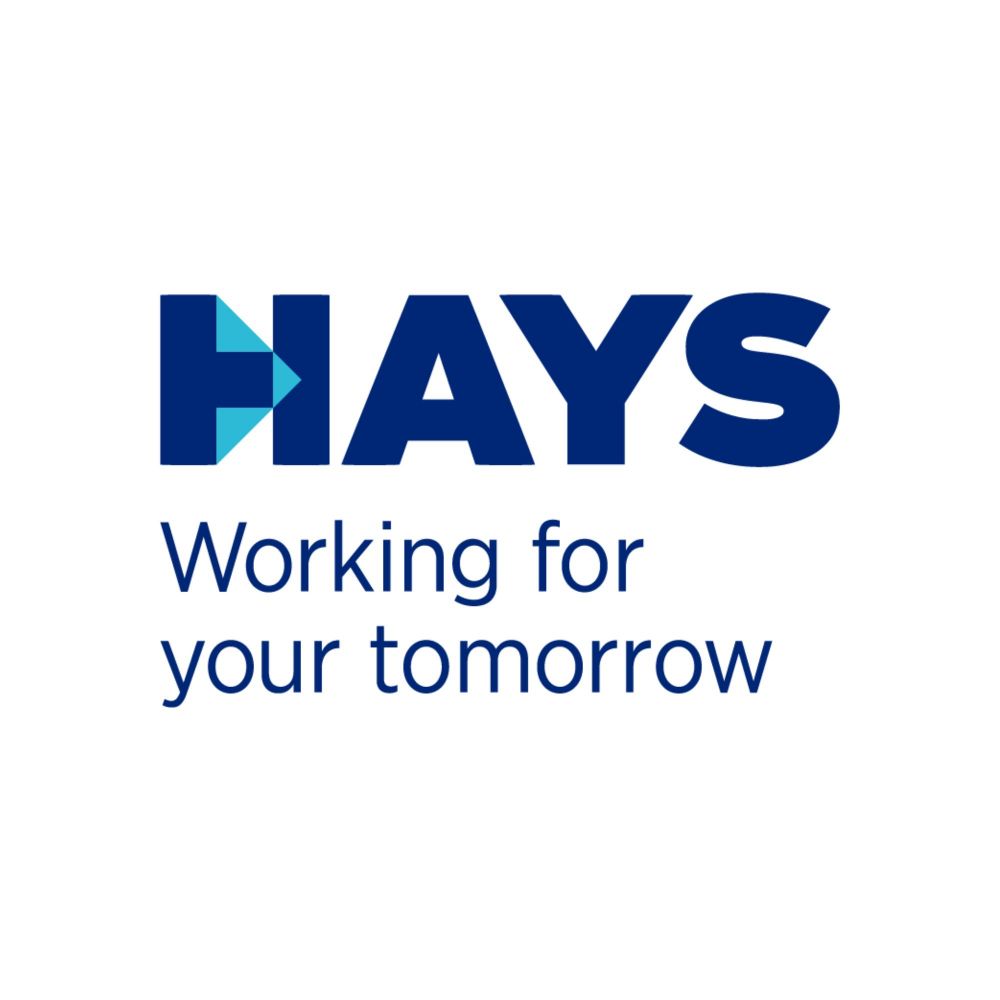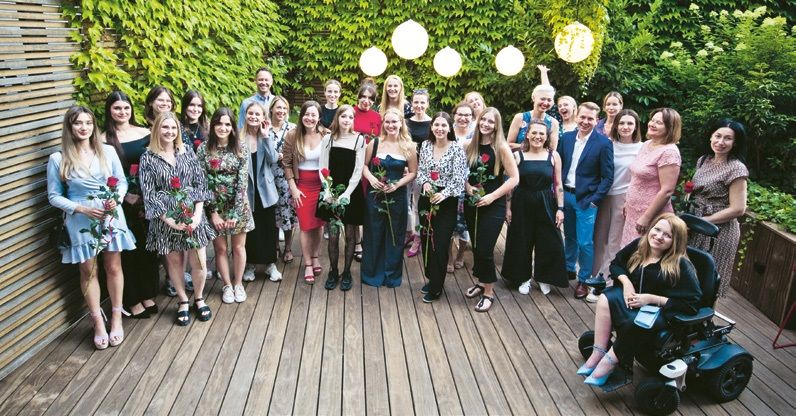DE&I policies as a way to ensure equal opportunities in the workplace

Equal opportunities for women and men in the work environment are among the key objectives of Diversity, Equity & Inclusion policies in organisations. Awareness of inequalities is growing among employers and employees, who often experience discriminatory actions or observe them in their surroundings. These are the conclusions of the Hays Poland report “Women in the Labour Market 2023. DE&I policies in practice”, created in collaboration with the Research Centre for Women and Diversity in Organisations at Kozminski University.
There is a growing public debate about the pay gap and unequal opportunities for women and men to progress in their careers or to be professionally active. Very often, the obstacles faced by female professionals are due to stereotypical thinking about social roles and the unequal distribution of domestic duties and caregiving responsibilities. According to Hays annual survey, gender-related career difficulties are experienced far more often by women. They frequently earn less than similarly qualified male colleagues, find it difficult to break into masculinised professions and industries, and face prejudices about women in business.
What genuinely supports equity and diversity?
Implemented and planned legislative amendments following the EU directives on the pay gap and work-life balance may help to create momentum for change. These aim to eliminate unjustified pay gaps by introducing greater pay transparency in organisations, increasing the proportion of fathers taking parental leave and bringing about a more equal distribution of caregiving responsibilities. However, more is needed to level the playing field between men and women, namely widespread education, understanding of the nature of the problem and allyship.
The success of the whole mission largely depends on awareness of the challenges faced by women in the labour market, but also by other groups who face discrimination or exclusion in the professional world. Under-representation in the business can also apply to people with disabilities, workers aged 60+, parents, ethnic minorities, LGBTQ+ people, etc. While the challenges they face in the labour market may vary, the foundation for removing obstacles is to recognise the problem and discuss potential solutions.
The role of employers: to educate and raise awareness
DE&I policies in organisations focus on this aspect. They aim to create inclusive work environments where hiring, promotion and salary are determined by skills and performance, not by demographic factors, personal circumstances or physical ability. On the one hand, DE&I policies stem from social change and a growing desire among businesses to engage with a good cause. On the other hand, actions undertaken by companies are often a reaction to the pressure from current and potential employees. They are increasingly looking for jobs in fair, transparent, inclusive organisations committed to socially relevant initiatives.
Therefore, businesses have a strong influence in increasing sensitivity to social injustice, as many employees first come into contact with this subject in the workplace. Employers are also develo ping practical solutions to level the playing field in career development and ensure transparent hiring and remuneration policies. According to the Hays report “Women in the Labour Market 2023. DE&I policies in practice”, employees recognise these efforts, believing that they lead to a substantial increase in equity and diversity in the world of work.
Confidence in equal opportunities for promotion and fair pay is not widespread
In this year's edition of the Hays survey, the percentage of women convinced that there is no correlation between employee gender and promotion opportunities has increased by 6 pp. to 39%. This result remains unsatisfactory and, on top of that, it is significantly lower than that of male sur- vey participants (69%). Interestingly, the percentage of male professionals convinced of equal promotion opportunities fell by 2 pp., so the gap between the perspectives of men and women is narrowing.
On the one hand, this may demonstrate the effectiveness of DE&I policies that make promotion principles more transparent, and increase the sense of equity among female professionals. On the other hand, a possible scenario is that men are becoming increasingly aware of the challenges faced by their female colleagues and are stepping into the role of their allies. However, it is also possible that some men perceive the measures taken by organisations to increase the representation of women in business as constraining their career progression.
There is also a slight change in the perception of fair remuneration. This year, 35% of women (+2 pp.) and 67% of men (+1 pp.) agreed that they and their colleagues with similar qualifications are fairly paid, regardless of gender.
Workers raising children often experience difficulties in balancing the roles of an employee and a parent
Among those raising children, as many as 66% of women and 37% of men report that they have experienced in their careers difficulties in balancing work and parental responsibilities. The scale of this problem among women is particularly worrying. The obstacles faced by working mothers are most often related to having to choose between being involved in family or professional life and not being able to participate fully in the lives of their children.
Parental challenges are also faced by men, who increasingly want to fully participate in their child's life from the very beginning. However, it is not always respected by their business environment. Working fathers complain of similar challenges as working mothers – difficult choices and limited time spent with loved ones. Significantly, as many as one in two male respondents experienced difficulties taking time off work for their child's illness.
One in three organisations in Poland has a DE&I policy in place
Organisations are increasingly engaging in initiatives to enhance equality and diversity in the work environment, centred around the objectives of an internal DE&I policy. According to the Hays survey, a formal DE&I policy is in place in 33% of organisations, and 13% are working on implementing one.
The responses from employers show that the origins of the DE&I policies most often lie in the desire of the business to have a positive impact on society. Second on the list of reasons for implementing a DE&I policy was the decision of the organisation's headquarters.
In practice, this means that more than half of the DE&I policies in Poland have foreign roots. Consequently, there is some risk that the focus areas identified in them may not fully align with the critical challenges that Polish society faces.
Positive findings emerge from the responses of those employed in organisations with DE&I policies. As many as 78% of employees say they know the objectives and priorities set out in their organisation's DE&I strategy, and a further 82% feel that the actions and initiatives taken in this area genuinely support diversity and equity in the workplace.
According to Hays annual survey, there is growing enthusiasm among employees for measures to increase diversity in the workplace. At the same time, there is still not much progress on equal opportunities for women and men, and employees are often unable to name specific initiatives undertaken by organisations. It is therefore likely that organisations' DE&I policies need a more tangible framework that engages all stakeholders.
Author: Aleksandra Tyszkiewicz, CEE Executive Director – Enterprise Solutions at Hays
This article comes from magazine:
FOCUS ON Business #13 November-December (6/2023)
 Check the issue
Check the issue








